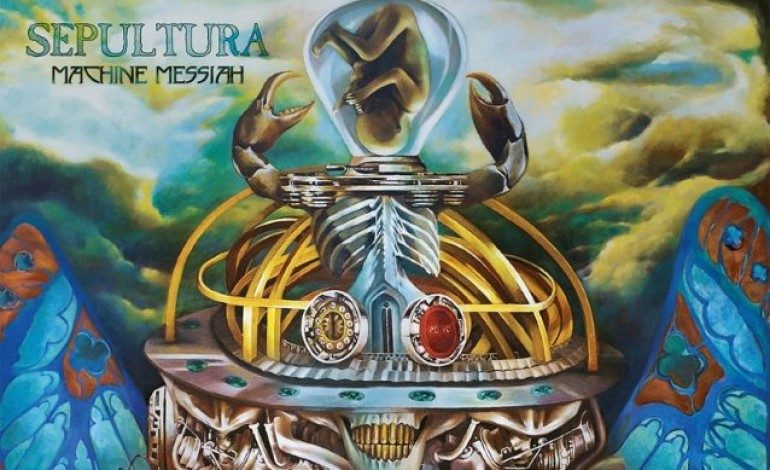

Sepultura Continues to Innovate
Brazilian thrash titans Sepultura just can’t quit. Their seminal records, Chaos A.D. and Roots, are now over 20 years old. Their longevity can be credited to their ability to innovate and play with new musical ideas. Even after losing their highly revered vocalist Max Cavalera, their willingness to experiment, along with their strength and determination, have kept their momentum going. In 1996, Sepultura shook up the scene by incorporating Brazilian indigenous music on Roots; now, over 20 years later, they’ve taken on the daunting task of creating A-Lex, a concept album based on Anthony Burgess’ influential novel, A Clockwork Orange. Time and time again, Sepultura have shown that they still have plenty of creative juices still flowing through them.
Now, Sepultura is kicking off 2017 with another entry into their already impressive catalog. Machine Messiah is another step in Sepultura’s evolution, mixing their classic Brazilian thrash metal sound with more modern, progressive elements. The band’s primitive, aggressive energy is juxtaposed beautifully against a wide array of diverse musical influences, leading to some new and unique sounds.
The opening title track sets up a beautifully melodic soundscape with plenty of crushing heaviness to shake things up. From there, the momentum kicks in without any build up. “I Am the Enemy” and “Phantom Self” make for crushingly brutal thrash anthems, with all of Sepultura’s best elements brought together into a final product of elegantly ornate high-energy metal.
Despite the chaotic thrash metal insanity, the progressive elements are never lost. “Phantom Self” features some impressive keyboard and guitar leads that add a lot of color into a style that is often seen as being stereotypically two-dimensional. “Iceberg Dances” pushes the envelope further with melodic thrash riffs spiced up with flamenco-style guitars. “Sworn Oath” is a groovy sludge-fest enhanced by operatic-level synthesizers. The album closes out with “Cyber God,” a perfect climax that showcases the band’s wide range of musical influences. There’s math-metal grooviness clearly inspired by Meshuggah, along with some machine-gun chorus lines that sound like they were written by Dino Cazares. It’s rounded out by haunting baritone vocals that will make you wonder if Peter Steele came back from the dead.
Perhaps the only real flaw with Machine Messiah is that it feels like it isn’t pushing itself far enough. The large majority of the record still seems to be driven by classic-style thrash riffage. Not that there’s a problem with that, but oftentimes the more progressive musical elements feel like they’re only teased at without being fully fleshed out. Hearing some good old-fashioned thrash metal is always great, but it’s also pretty played out. Machine Messiah feels like it’s trying to offer something new, but still has one foot stuck in the past.
That being said, Machine Messiah still has a lot to offer to metal fans both old and young. After many years, Sepultura continues to prove that they can’t be written off.
